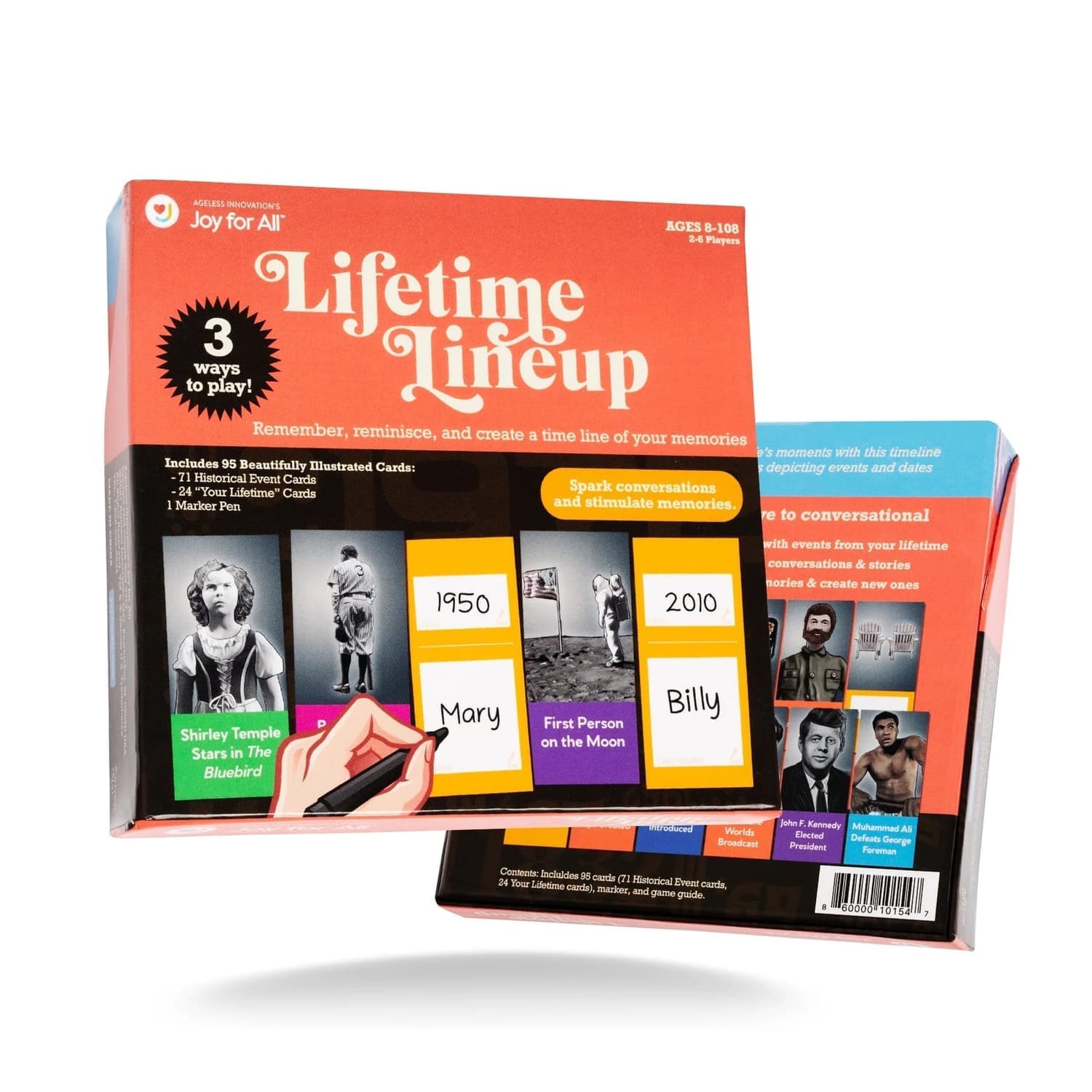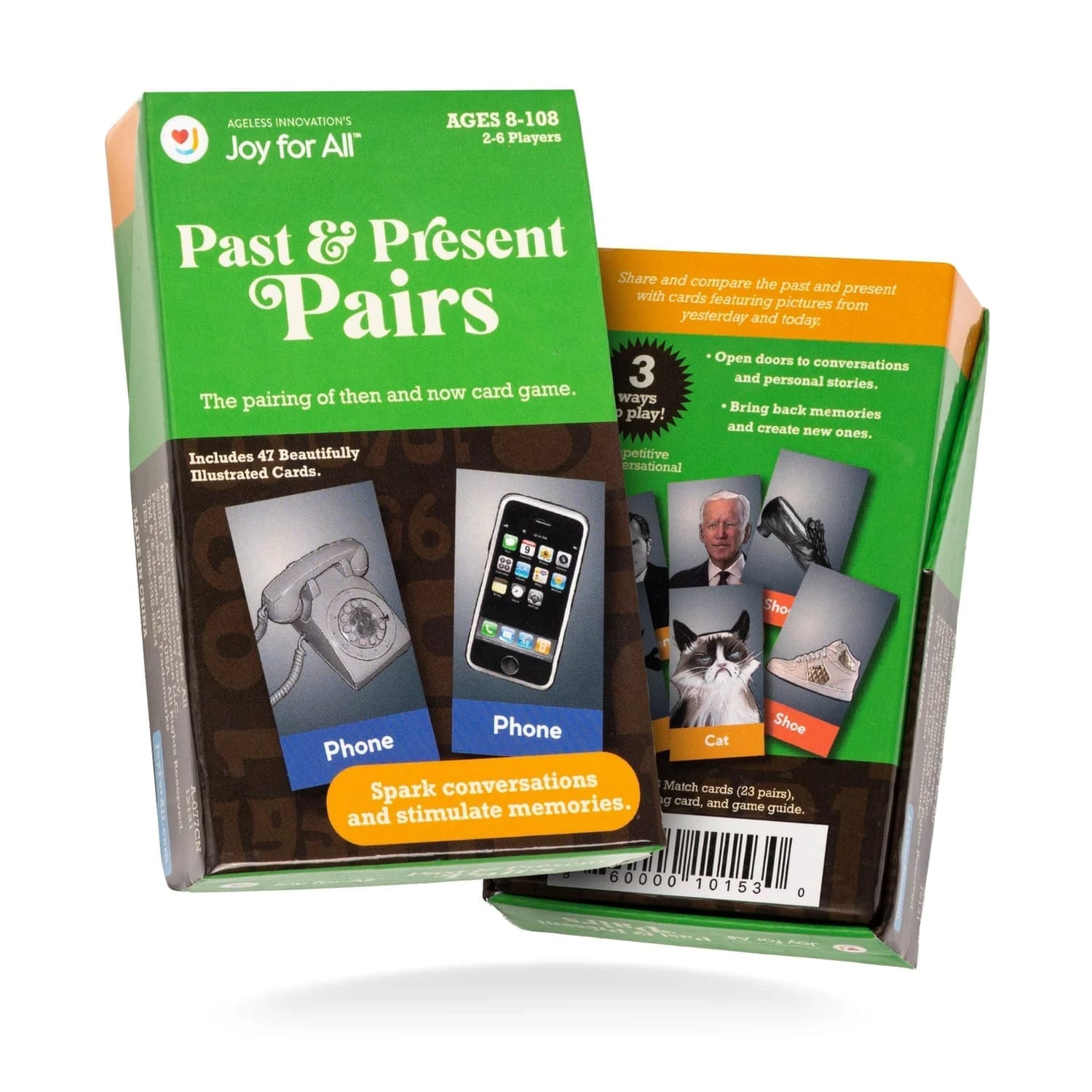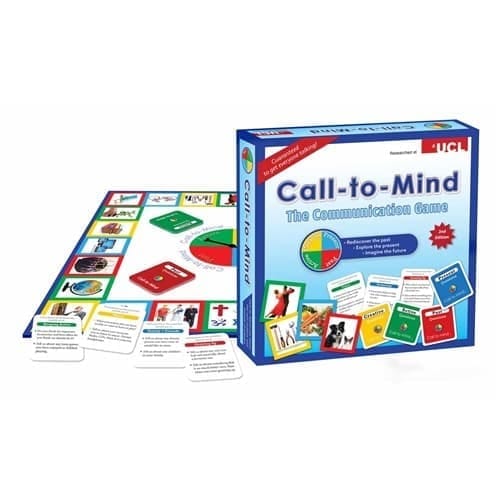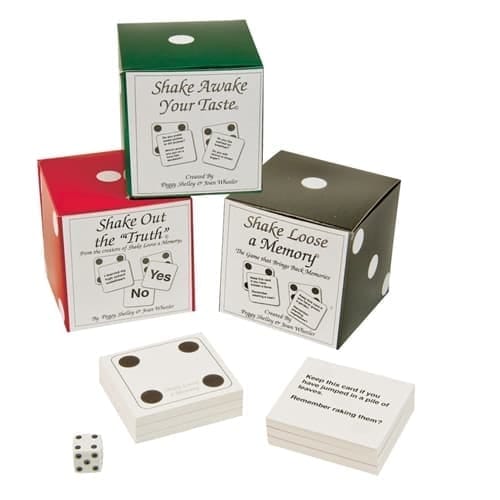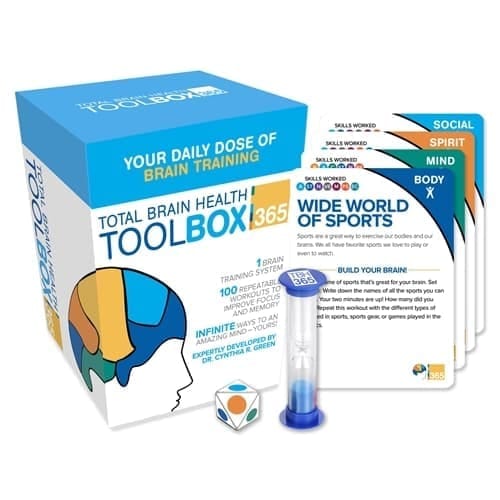Memory Games for Adults with Dementia
Boost Focus, Connection & Cognitive Wellness
Memory Games for Adults with Dementia
Boost Focus, Connection & Cognitive Wellness
What Are Memory Games for Adults with Dementia?
Memory games are specially designed activities that help older adults exercise their minds while enjoying moments of fun and connection. These games use matching, recall, or conversation prompts to stimulate thinking, memory, and conversation.
They’re created with simplicity and clarity in mind, making them accessible for people with dementia, Alzheimer’s disease, or mild cognitive impairment. Many games also feature visual cues and familiar images to spark memories and strengthen emotional connections.
Memory games can be played alone or with caregivers, family members, or friends, making them a versatile tool for social interaction and mental well-being.
Benefits of Memory Games for Adults with Dementia
Help maintain cognitive skills by practicing recall and recognition
Stimulate conversation and storytelling, promoting social interaction
Support emotional well-being through positive memories
Reduce boredom, restlessness, and frustration
Provide a gentle, non-invasive way to engage the mind
Who Can Benefit from Memory Games?
Adults in the early to middle stages of dementia
Seniors who enjoy familiar activities that spark conversation
Caregivers looking for easy-to-use tools to engage and comfort their loved ones
Activity coordinators seeking effective, low-pressure brain games for older adults
Featured Memory Games for Adults

"Unlike most lists filled with Amazon-only products, this selection features handpicked items from specialized platforms trusted by caregivers, therapists, and dementia care professionals."
Lifetime Lineup – Memory Games for Older Adults |by Joy For All
Lifetime Lineup is a unique memory game designed to spark conversations and support reminiscence therapy in older adults, including those with Alzheimer’s or dementia. Using vibrant photo cards and engaging prompts, it encourages storytelling and sharing of personal experiences, helping to keep the mind active and spirits lifted. This is one of the most recommended conversation games for adults in memory care and home settings.
Past & Present Pairs – Reminiscence Therapy Matching Game for Adults | by Joy For All
Past & Present Pairs is a thoughtful memory game designed to spark reminiscence and conversation in older adults. This engaging matching card game features carefully selected images from different eras—pairing nostalgic photos with modern-day counterparts—to foster recognition, storytelling, and social connection. It’s a wonderful activity for seniors living with dementia or Alzheimer’s, offering gentle cognitive stimulation and a comforting sense of familiarity.
Call to Mind – Conversation Game for Dementia:
Meaningful Conversations for Seniors | Social Interaction Tool | by Active Minds
Call to Mind is a specially designed conversation game for older adults with dementia or memory challenges. Developed by Active Minds, this engaging game uses question cards to spark memories, encourage storytelling, and foster connection between seniors, family members, and caregivers. Its simple yet powerful prompts make it an ideal addition to dementia care activities, both at home and in care settings.
Shake Loose a Memory – Conversation Starter Game:
Reminiscence and Conversation Prompts for Dementia Care | by Alzstore
Shake Loose a Memory is a unique conversation starter game designed to spark memories, stories, and laughter in seniors with Alzheimer’s or dementia. Developed by experts in dementia care, this card-based game features prompts that encourage players to share personal stories, stimulating both cognitive and social engagement. It’s a gentle and enjoyable way to promote emotional connection between seniors and their caregivers, friends, or family.
TOOLBOX365 by Total Brain Health
Brain Games for Older Adults | Cognitive Stimulation Activities | by Total Brain Health
TOOLBOX365 is a thoughtfully designed kit that offers brain games for older adults and cognitive stimulation activities to help maintain memory, focus, and overall cognitive health. Created by Total Brain Health, this all-in-one resource includes engaging activities specifically tailored for people with dementia, making it an excellent tool for caregivers, therapists, and family members.
Buying Guide: How to Choose Memory Games for Adults with Dementia
Stage of Dementia:
Select games that match the individual's current cognitive abilities. For early stages, look for challenging games like Sudoku or card matching. For moderate to late stages, simpler visual games with clear prompts are more effective.
Type of Memory Targeted:
Some games focus on short-term recall, others on long-term memory using familiar songs, idioms, or images. Consider what kind of stimulation best suits your loved one’s needs.
Ease of Understanding:
Games should have clear instructions, minimal steps, and intuitive design to prevent confusion and frustration.
Material and Presentation:
Opt for games with large text, bright colors, and durable pieces that are easy to grasp. Visual appeal can make games more inviting.
Feedback from Users:
Always check product reviews from caregivers or professionals. Positive experiences from others in similar situations are a helpful indicator of real-world success.
Tips for Caregivers & Families:
Choose games that match your loved one’s current stage of dementia—challenging enough to engage but simple enough to avoid frustration.
Use memory games during calm parts of the day, or after meals, to promote focus and reduce anxiety.
Encourage participation without pressure. Let the activity flow naturally and celebrate even small achievements.
Incorporate familiar themes—such as shapes, songs, or well-known sayings—to spark recognition and joy.
Rotate games every few days to maintain novelty and interest, while keeping favorites available for comfort.
Stay present and observe: if a game is too difficult or causes distress, gently switch to a simpler task or offer reassurance.
Support Daily Engagement with Memory Games
The right memory game can spark joy, boost confidence, and bring meaningful moments into everyday life.
FAQ
Games that involve matching images, completing familiar sequences, or solving simple puzzles tend to work best. Options like matching cards, tile games, and simplified Sudoku are great choices because they promote engagement without overwhelming the player.
The best games are those that stimulate memory and cognition gently. Matching card games, familiar word or music-based games, and visual puzzles like tile matching or simplified Sudoku are all excellent for different stages of dementia.
Matching card games for seniors usually include large-format cards with clear, simple illustrations. These games aim designed to stimulate memory recall, support focus, and encourage interaction, especially during the early or middle stages of dementia.
Yes, matching games can help maintain and stimulate short-term memory and visual recognition. While they don’t stop cognitive decline, they support mental engagement and may slow down the rate of deterioration when used regularly.
Cognitive games that include visual puzzles, logic challenges like Sudoku, and memory recall activities (such as songs, idioms, or object matching) are ideal. The key is to match the game to the individual’s current abilities and preferences.
Daily short sessions (10–30 minutes) can be beneficial. It’s more effective to engage in frequent, low-stress cognitive activity than to do long or difficult sessions. Adjust based on energy levels and interest.

Affiliate Disclosure:
This website contains affiliate links. If you click on these links and make a purchase, we may earn a small commission at no additional cost to you. These commissions help us keep this site running and allow us to continue creating helpful content to support caregivers and families.
